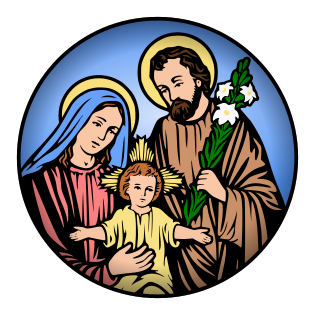Posture is defined as a position of the body, it can also be defined in terms of attitude. During Mass we sit, stand and kneel… a lot. Yet, it all means something and says something about our inner dispositions …Sitting is a posture of listening. We sit, ready to hear and receive.Standing has been a posture of prayer for Jewish people since before the time of Jesus. We also stand out of respect – for the Gospel, the celebrant of the Mass, the priest or the bishop. Kneeling is a posture of respect and adoration. We kneel because we believe Jesus is truly present in Holy Communion. If you believed you were literally in the presence of Christ himself, falling to your knees would be a natural thing to do … and that is what this leper does in the gospel … falls to his knees.
In biblical times, leprosy was an incurable disease. It was so bad that those infected with it were cast out of their own community – from the city/town, family, friends, and from the synagogue … But this leper is different. We can surmise that he had some knowledge of Jesus as a healer, miracle worker … He displays great courage, no leper would have dared get close to anyone … but here he is … on his knees with one desperate prayer. His actions, his posture, his words are evident of faith, humility, an openness to receive… And Jesus, displaying, by worldly standards, His own courage – in an unprecedented move touched the leper … “be made clean.”
Friends … we can learn something from this leper … his posture, his words they teach us something … In Mass we sit, stand and kneel for a reason, the outward display of posture reflects an interior disposition with an openness to receive the graces that offered to us in the Mass. Posture, therefore means something. But there’s more. The posture, the exterior action of the leper reveals his heart … he was sick, he wanted to be made whole – restored to right relationship with family, community … with God. Friends, this is what happens when we confess our sins. When we have the inner humility to show the Lord the sickness of our sins with an openness to receive His mercy, He restores us to right relationship with others, with Him – He makes us whole. But, like the leper, we have to have the courage to get close … the leper doesn’t shout at Jesus from distance, he doesn’t call out to Him from his bedroom … He gets close to Him. This is what we must do in confession – knowing that the priests has the authority to forgive sins, which he does because of Jesus gave that authority… Sin is a clog in the pipes. If we do not confess our sins to a priest at least once per year, then the grace of God cannot penetrate the clog – confession unclogs the pipe so that we might be able to receive His grace – particularly in Holy Communion – unhindered, and in this way restored, made whole … in right relationship with God.
I want to challenge – as I think I do each year – everyone to go to confession during Lent. You don’t have to go to me, just go. I know, many Catholics have avoided confession for a long time. Perhaps many of you are apprehensive about going … what’s more important – you feeling ashamed, embarrassed, nervous … or receiving God’s forgiveness for the salvation of your soul? And to speak to posture during Mass, you will notice that my posture is going to be different. At one of the Masses each Sunday during Lent, I am going to face the tabernacle – not for the whole Mass but for the parts in which the dialogue is with God. In such a way, it shows that all of us together facing Christ, that our common focus is on Him and not on each other or me. And as is specific to my role as priest, it is to lead you to Jesus. Thus, turning to the Lord, I bring you to Him. Posture means something – sitting, standing, kneeling … it is to focus on the one who can make us whole.
